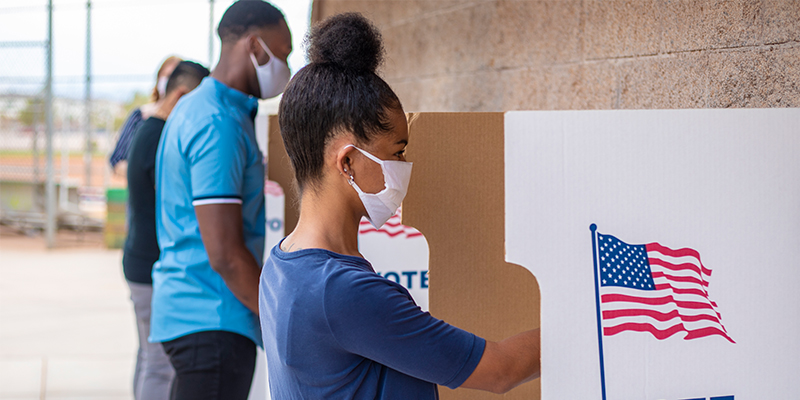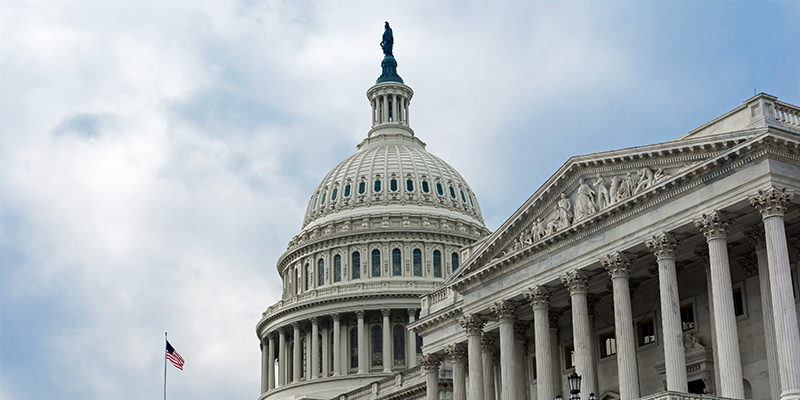The 2020 U.S. election will have significant implications for the leadership and political makeup of our legislative bodies at the federal, state and local levels. Candidates for elected office are dominating the airwaves, social media and other outlets with campaign advertisements as Nov. 3 draws closer. However, there are also several state and local ballot initiatives impacting the commercial real estate industry that should not be overlooked.
BallotPedia indicates that there are 128 statewide ballot measures in 34 states this year. This is down from the national average of 172 during a federal election year. The scope of these initiatives range from property taxes, marijuana legalization, election policies, bonding authority, education, the environment and other areas.
There are two ballot initiatives that will significantly impact commercial real estate by restructuring property tax revenues within their respective states:
- Californians will vote on a split roll ballot initiative, known as Prop 15. The adoption of this proposition will increase the property taxes on commercial and industrial properties by an estimated $11.5 billion. NAIOP of California is part of the “No on Prop 15” campaign to defeat this ballot measure that increase of the cost of doing business and be detrimental to businesses struggling to survive the economic slowdown from the pandemic.
- The opposite situation exists in Colorado, which already places a greater tax burden on commercial real estate through the 1982 Gallagher Amendment. The 1982 constitutional amendment established a statewide mandate that the ratio between residential and commercial property tax collections is 45 percent to 55 percent. NAIOP Colorado is supporting Amendment B on this year’s ballot that would repeal the ratio requirement under the Gallagher Amendment. The chapter is seeking a more balanced approach and one that “encourages private citizens and the legislature to find ways to fund essential services without increasing property taxes on commercial properties that are already unsustainably high.”
There are a number of other statewide ballot measures that are focused on raising additional revenue for education and other programs as state and local governments strive to maintain balanced budgets:
- The adoption of Proposition 208 in Arizona would levy an additional 3.5% tax on annual income for individuals making over $250,000 and married couples filing jointly making over $500,000 in order to increase funding for public education.
- In Illinois, the General Assembly passed legislation placing a measure on the November ballot to repeal the state’s constitutional requirement for a flat income tax. If adopted, Amendment 1 would replace the flat income tax rate with a new graduated tax rate based on income.
In addition to statewide ballot initiatives, there are local ballot measures of importance for commercial real estate at the local level:
- In Austin, Texas, two propositions on the November ballot would fund transportation projects. The passage of Proposition A will establish the local property rate and dedicate a portion to fund the operation and maintenance of the city’s high-capacity transit system. The city would also be allowed to borrow $460 million in bond funding for infrastructure projects, including sidewalk construction and repair, with voter approval of Proposition B.
- In Baltimore, Maryland, voters will decide on a ballot measure to promote economic development, community revitalization and job creation. The approval of Proposition C will fund a two-year community and economic development loan program through $38 million in bonds. The program, in part, is intended to retain and attract new jobs, incentivize private investments, and improve commercial and industrial areas.
Elections have consequences, and this applies not only to candidates, but also to the ballot measures to establish new policy objectives and approaches to funding government services and programs. Consequently, it is important to make informed decisions regarding these ballot measures. However, absent high-profile ballot measures, such as Prop 15 in California, voters will often enter the polling stations with limited understanding of the ballot measures listed below the candidates for elected office. Many may cast their vote based only on the title and short description or summary of the measure provided by either the secretary of state or attorney general. It is vital that NAIOP members educate themselves on the impact these various ballot measures have on their industry before they cast their votes this election season.














